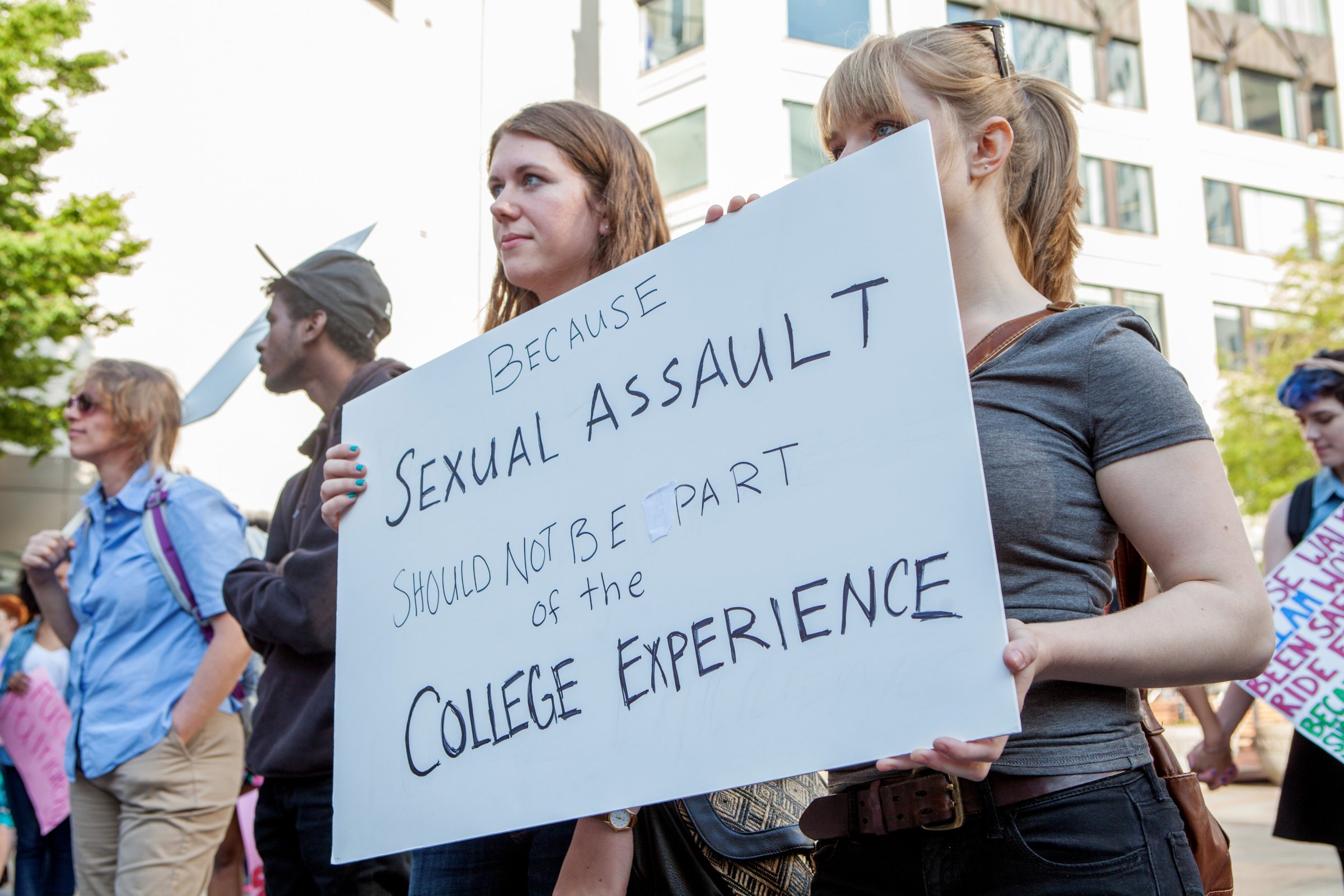
A recent article in Rolling Stone has related a horrifying account of an on-campus gang rape allegedly committed by University of Virginia students in 2012. Third-year student “Jackie” told her story of how, as a freshman, she was brutally raped for three hours by seven men in a darkened, upstairs room at a fraternity party after being lured there by “Drew,” an upperclassman. Jackie’s account of her subsequent run-ins with Drew only add to the chilling nature of the crime: Weeks and months after the incident, Drew acted as though nothing unusual had happened, even thanking her for the “great time” he’d had.
This is criminal, predatory, and sociopathic behavior. If Jackie’s account is accurate, the perpetrators deserve lengthy prison sentences. Yet they reportedly graduated from UVA and remain at large. Why? Did police and prosecutors drop the ball?
No. Nobody ever even called the police. UVA handled the case internally, which is entirely normal on today’s college campuses. For everyone’s sake, this must stop—and the sooner the better.
The cause and extent of the problem of sexual assault on campus is hotly debated. But there’s no dispute that the broken way colleges handle these cases is a result of the federal government’s current interpretation of Title IX, the civil rights law that bans sex discrimination in federally funded educational programs (including nearly all colleges, public or private). Regulations from the Department of Education’s Office for Civil Rights encourage schools to allow victims to decide how and whether to go to police, while demanding that schools conduct what amount to rape trials in campus kangaroo courts, even if the crime is never reported to law enforcement. This has proved to be a mistake.
The motivation for this “police optional” approach is based in compassion. Advocates argue that law enforcement is skeptical or dismissive of accusers’ claims, that a police investigation will “revictimize” those who have already been through a traumatic experience they’d rather not revisit, and that the evidentiary standards maintained by the criminal justice system means that it’s likely their attackers will go free.
Yet the huge costs of this approach are too often ignored. Foremost is the fact that many campus sex crimes are never subjected to professional forensic investigation, leaving perpetrators unpunished and free to commit further crimes. Part of the horror of Jackie’s story is the sense that this was not the perpetrators’ first crime—and probably not their last. One oft-cited study suggests that serial predators commit around 90% of campus rapes, with an average of nearly six rapes per perpetrator. If this number is anywhere near accurate, each rape not reported to law enforcement is a missed opportunity to protect future victims from harm.
No rape victim, on campus or off, should be required to report what happened to them to the police or to anyone else. But designing a system that encourages silence or the avoidance of law enforcement is unconscionable. As Slate’s Dahlia Lithwick writes, “How can a felony offense be kept out of the police’s hands, and how can victims be presented with a menu of choices that includes, and even encourages, doing nothing?
We cannot reduce the incidence of rape by giving up on the only system that can actually remove dangerous people from society. If police have retained outmoded or simply uninformed attitudes towards victims of sexual violence, the solution is to educate and train them to properly handle victims and investigate these crimes, not to outsource the job to self-interested, underqualified campus administrators. For those concerned with issues of class and privilege, this should be an especially high priority. Nothing we do on campus can help people who don’t and won’t attend college—a cohort disproportionately composed of the poor and minorities. Improving police response to sexual crimes is the only way to help victims universally.
Campuses have a role to play when their students are victimized. They can separate accusers and the accused, provide counseling and protective services, and help guide them to the resources they need, including resources to navigate and cope with the police and legal process. They can also maintain clear memoranda of understanding with local police departments that facilitate the quick, thorough, and professional investigation of all felony crimes committed on campus.
Neither accusers nor the accused will get justice if Title IX continues to be interpreted to force colleges to investigate and adjudicate these crimes themselves. That system has failed. As the Rape, Incest, and Abuse National Network wrote in a letter to the White House last February, “It would never occur to anyone to leave the adjudication of a murder in the hands of a school’s internal judicial process. Why, then, is it not only common, but expected, for them to do so when it comes to sexual assault?”
Robert Shibley, an attorney, is Senior Vice President of the Foundation for Individual Rights in Education (FIRE).
More Must-Reads from TIME
- Cybersecurity Experts Are Sounding the Alarm on DOGE
- Meet the 2025 Women of the Year
- The Harsh Truth About Disability Inclusion
- Why Do More Young Adults Have Cancer?
- Colman Domingo Leads With Radical Love
- How to Get Better at Doing Things Alone
- Michelle Zauner Stares Down the Darkness
Contact us at letters@time.com